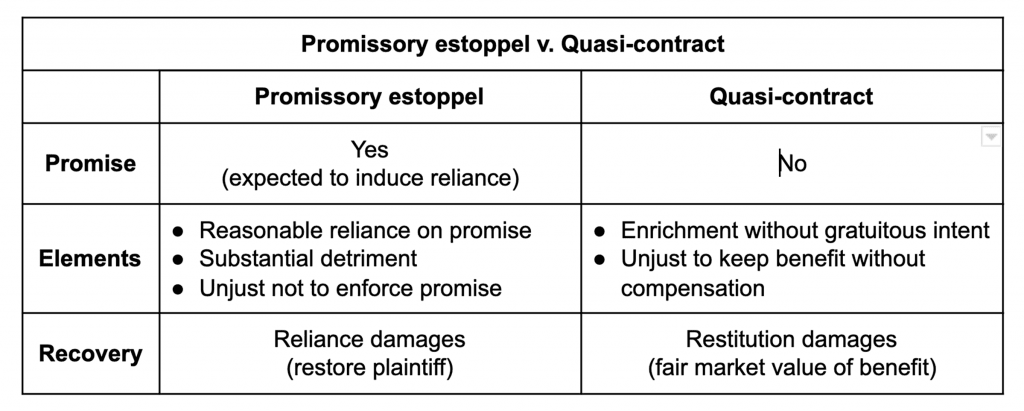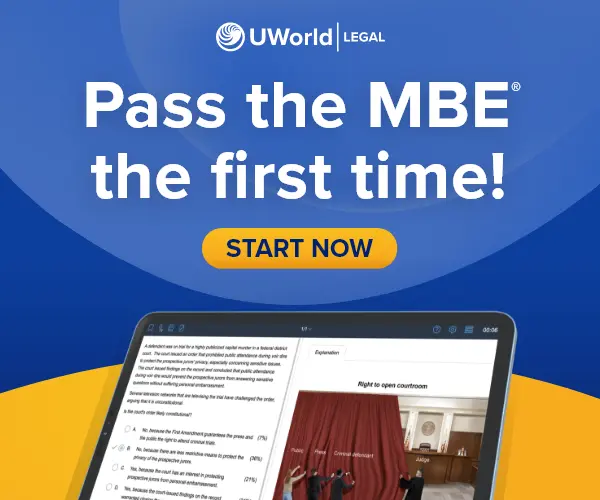You’ve known that a party can sue for breach of contract to enforce a valid contract since your 1L year. But what if the contract is unenforceable or the parties’ agreement was technically not a contract? Contract law provides two methods of recourse: promissory estoppel and quasi-contract.
These doctrines are similar in that they are both used to achieve a fair, equitable outcome for the aggrieved party. However, their rationales are different:
- Promissory estoppel = there was a promise and fairness requires enforcement
- Quasi-contract = there was no promise but fairness requires restitution
Therefore, the key to identifying which doctrine applies turns on whether the defendant did or did not make a promise. Let’s address each in turn.
PROMISSORY ESTOPPEL
If a defendant did make a promise that should reasonably be expected to induce the plaintiff’s reliance, then the plaintiff can recover under the doctrine of promissory estoppel when:
- the plaintiff reasonably relied on the defendant’s promise
- that reliance caused the plaintiff to incur a substantial detriment and
- it would be unjust not to enforce the promise.
Recovery is generally limited to an amount equal to the economic harm that the plaintiff incurred by reasonably relying on the defendant’s promise. These reliance damages are intended to restore the plaintiff to the position he/she occupied before relying on the defendant’s promise.
QUASI-CONTRACT
If a defendant did not make a promise, then the plaintiff can recover under a quasi-contract (also called an implied-in-law contract) when:
- the plaintiff enriched (i.e., conferred a valuable benefit on) the defendant without gratuitous intent and
- it would be unjust for the defendant to keep that benefit without compensating the plaintiff.
Unjustness arises when the defendant accepted the benefit knowing that the plaintiff expected payment (e.g., defendant ate at plaintiff’s restaurant). It also arises when the plaintiff had a reasonable excuse for not giving the defendant an opportunity to refuse the benefit (e.g., doctor gave first aid to an unconscious accident victim).
If the elements of quasi-contract are met, then the plaintiff can recover restitution damages for the fair market value of the conferred benefit.
Here’s a simple table to help you keep these concepts straight:

You can use this tip when answering practice questions in the UWorld MBE® QBank. Click here to access our QBank or purchase a subscription.




